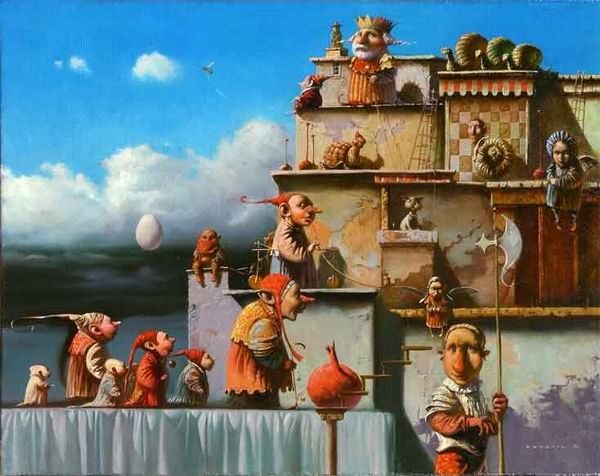
Houston We’ve Had a Problem
How Early (Chess) Education is Failing Students
“Okay, Houston we’ve had a problem here.”
“This is Houston. Say again please.”
“Houston we’ve had a problem. We’ve had a main B bus undervolt.”
This was communication by which the Apollo 13 crew reported a major technical fault in one of their electrical systems to the Space center in Houston.
But how to and to whom report our faulty education system, failing millions in math, physics, language acquisition, and well, sadly... in our beloved game, too.
Here's the second World Champion Dr Emanuel Lasker, thinker, philosopher, and PhD in Math in his Manual of Chess from 1927 (back then the champions were still people of erudition and culture as opposed to High school drop-outs of today),
"Education in chess goes on in a most haphazard fashion. Most chess players slowly climb to a certain rather low level and stay there.
"Our education, in all domains of endeavor, is frightfully wasteful of time and values. In math and in physics the results arrived at are still worse than in chess. Is there a tendency to keep the bulk of the people stupid?"
"...a symptom of a sickness that has befallen our culture. We have learnt how to organize manufacturing plants, but our general education, our mental work are not better than our education in chess."
Yikes.
Why is the failure rate in education so high? or why is the success rate so low across all domains?
And what could be the possible culprit of this?
Let's take a look at some stats in order to see to what extent Dr Lasker's views expressed above may be true. First, assume that the measure of proficiency in chess is reaching the USCF expert level, that is 2000+ rating. So what is the percentage of those becoming successful in chess? In the States, according to Susan Polgar, the former Women's World Chess Champion, there are approximately 45 million people playing chess. Of whom only a miserable number 2,500 players possess the expert-to-GM strength. In other words, 0.0055% if my math is right.
At the same time, there are some six million scientists and engineers in the US. And about one million Medical Doctors. This means that you have, even in science and engineering that heavily rely on broadly-hated math, some 2,400 times greater chances to become successful than in chess.
Here's another interesting piece of stats. It's known that huge number of people take up chess once in their life time. Sadly, they soon give up never getting beyond the-moves-only barrier. How many of those 45 million "playing" as per Susan Polgar do you think can play and enjoy real chess? USCF has some 110,000 members. There's a significant number of the young registered just to be able to take part in rated Scholastic tournaments where I witnessed the games where Queen was lost on move three. Anyway, let's quadruple the USCF numbers and we get to less than 1% of those who really enjoy the game.
Is early education (responsible for forming the proper mindset as a foundation for understanding and further learning) possibly to blame for this sorrowful suckcess?
“Okay, Houston we’ve had a problem here.”
“This is Houston. Say again please.”
“Houston we’ve had a problem. We’ve had a main B bus undervolt.”
 Chess education becoming compulsory, Stroebeck, Germany 1823 (hopefully, they learned more than just the moves)
Chess education becoming compulsory, Stroebeck, Germany 1823 (hopefully, they learned more than just the moves)
.
.

